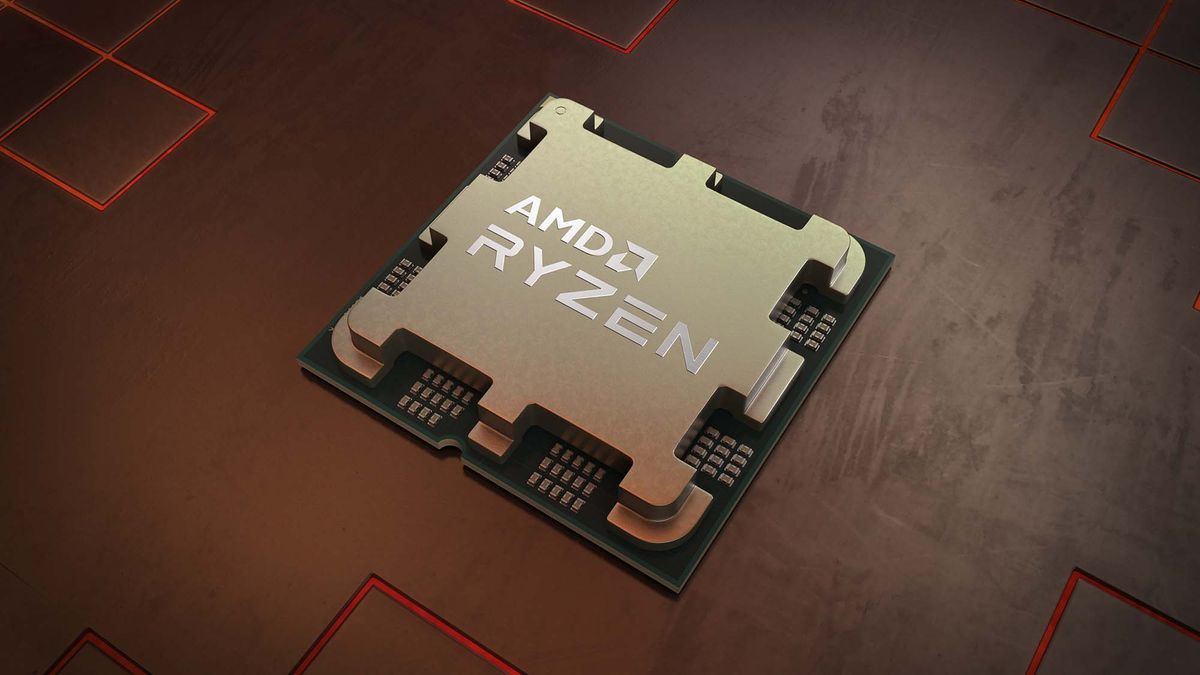The specifications for AMD’s upcoming Ryzen 7 9800X3D have leaked ahead of its scheduled release on November 7 – and it’s good news for gamers.
The leak remains consistent with the previous marketing description leak regarding a performance boost over its predecessor, the 7800X3D. As spotted by VideoCardz, the leak originates from Geizhals, a price comparison tool used by retailers in Europe. While the veracity of the information can’t be fully determined at this point, it’s likely to be accurate; leaks that stem from retailers tend to be more reliable than anonymous claims made on social media, after all.
AMD’s upcoming CPU will reportedly utilize eight Zen 5 cores with a 4.70GHz base clock speed, which can be boosted up to 5.20GHz – a 0.20GHz jump over the AMD Ryzen 7 7800X3D, and with the CPU multiplier unlocked, users will be able to manually overclock this new processor. This wasn’t possible with previous AMD CPUs that utilized 3D V-Cache, which could be a significant boon for overclocking enthusiasts.
The leaked specifications reference 96MB of 3D V-Cache, identical to the 7800X3D (which is among AMD’s best processors), but the aforementioned marketing leak suggested that the 9800X3D may have an 8% performance boost over AMD’s current high-end gaming CPU. This is reportedly powered by ‘Next-Gen 3D V-Cache’, but the Geizhals leak doesn’t appear to add any more information.
What does this mean for gamers?
AMD’s 3D V-Cache is a nifty tool for PC gamers, since it effectively triples the amount of available cache memory on the processor – something virtually every game can easily take advantage of, but it’s especially valuable in CPU-bound titles.
Content creators in particular could benefit from the rumored Next-Gen 3D V-Cache, as it should boost performance when running multiple applications simultaneously – for example, having OBS or Twitch open in the background while playing a game.
Of course, it’s important that we wait for AMD’s official reveal, to find out if the leak’s suggested improvement in gaming performance is indeed the case – and if so, it could go a long way in improving gaming experiences for many on PC, considering the recent slate of CPU-bound titles such as Dragon’s Dogma 2 and Star Wars Jedi: Survivor.






